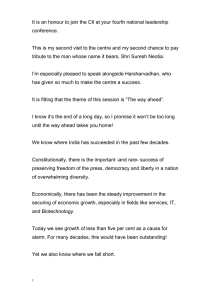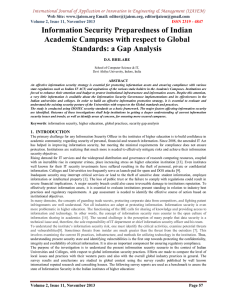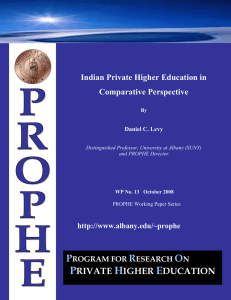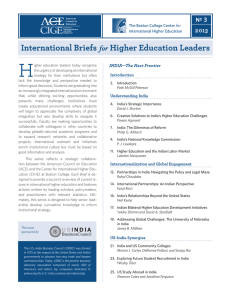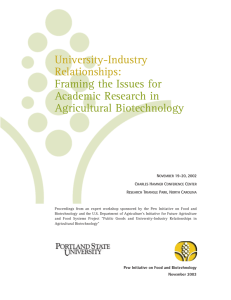Hindu, India 06-16-08 United States-India Agriculture Initiative Makes Significant Progress
advertisement
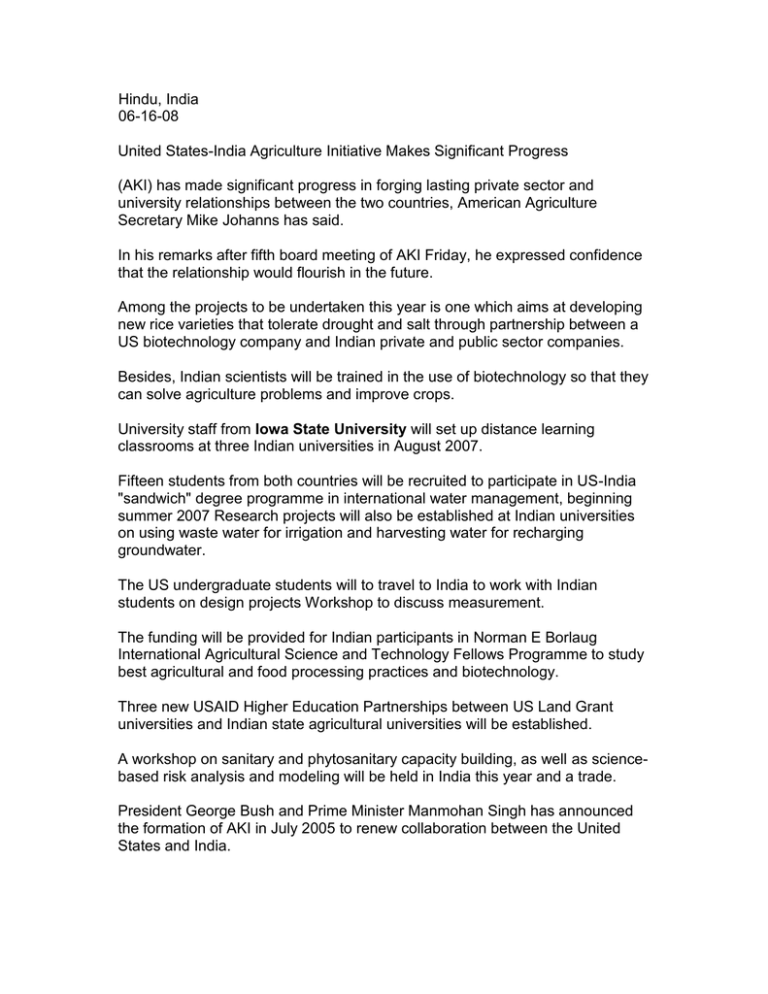
Hindu, India 06-16-08 United States-India Agriculture Initiative Makes Significant Progress (AKI) has made significant progress in forging lasting private sector and university relationships between the two countries, American Agriculture Secretary Mike Johanns has said. In his remarks after fifth board meeting of AKI Friday, he expressed confidence that the relationship would flourish in the future. Among the projects to be undertaken this year is one which aims at developing new rice varieties that tolerate drought and salt through partnership between a US biotechnology company and Indian private and public sector companies. Besides, Indian scientists will be trained in the use of biotechnology so that they can solve agriculture problems and improve crops. University staff from Iowa State University will set up distance learning classrooms at three Indian universities in August 2007. Fifteen students from both countries will be recruited to participate in US-India "sandwich" degree programme in international water management, beginning summer 2007 Research projects will also be established at Indian universities on using waste water for irrigation and harvesting water for recharging groundwater. The US undergraduate students will to travel to India to work with Indian students on design projects Workshop to discuss measurement. The funding will be provided for Indian participants in Norman E Borlaug International Agricultural Science and Technology Fellows Programme to study best agricultural and food processing practices and biotechnology. Three new USAID Higher Education Partnerships between US Land Grant universities and Indian state agricultural universities will be established. A workshop on sanitary and phytosanitary capacity building, as well as sciencebased risk analysis and modeling will be held in India this year and a trade. President George Bush and Prime Minister Manmohan Singh has announced the formation of AKI in July 2005 to renew collaboration between the United States and India. A work plan, formulated in February 2006, defined four focus areas: university capacity building, food processing and marketing, biotechnology and water management.




